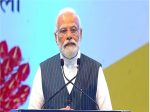
New Education Policy envisions imparting 21st century, employability skills: Kasturirangan
Team Udayavani, Jul 31, 2020, 5:40 PM IST

Bengaluru: The National Education Policy (NEP) 2020 envisions imparting 21st century and employability skills with no compromise on quality, says its draft panel head K Kasturirangan.
The idea of a liberal or a multi-disciplinary education at the undergraduate(UG) level and also a type of four-year structuring of secondary education provides a lot of opportunities for picking up many types of skills, which can be even used as employment opportunities, he said.
“These are all part of developing 21st century skills because education embeds these kinds of things to qualify the youngster with respect to what is needed in the 21st century which is communication, creativity, problem-solving and things of that type,” he said in an interview.
The former chairman of the Indian Space Research Organisation (ISRO) said the policy was aimed at putting the education in the right track using best of technologies and developments in the field, strengthening institutions, increasing gross intake ratio, among others, and at the same time, ensuring that quality is not compromised.
On the rationale behind introducing four-year UG courses, under the policy, Kasturirangan said it would prepare a youngster to have a comprehensive knowledge base for him to pursue professional interest at a particular level of maturity. Each one year of that period has the ability to carry forward education to the next step. It also has a provision at that particular point of time that if one wants to stop and engage in a certain profession, he would have developed a certain competence for “that kind of a thing”.
“So, if you work on that principle, first year you can have a certificate, because you need to show to the employer that you have done something… you get a certificate junior diploma, next level you will get a senior diploma, and then third level, you get a bachelors degree.
“And if you do some research and beef up your knowledge, develop new abilities to deal with issues and problems, you get a fourth year degree, it’s a kind of an honours, undergraduate degree with honours,” he added.
The idea is to provide multiplicities of options with a certain level of maturity of knowledge and ability to take up certain responsibilities at those points.
“In four years, we can have reasonable comprehensive education to fulfill what an undergraduate education should.”
On abolishing the M.Phil degree, Kasturirangan said it has not had its effectiveness, especially because there were masters degrees whether it is science and arts, and different areas and subjects.
“M.Phil has not been able to compete with them (masters) but at the same time I think in a sense one finds when you have a better way to get a degree with a better quality of knowledge and a better ability to carry out a profession, we think M.Phil does not play that role today,” he said.
Therefore, it will be more appropriate to put this role to other masters degrees that are already existing, rather than having a M.Phil which is a little diffused in terms of its ultimate outcome, Kasturirangan said.
On the policy envisioning a child’s mother tongue being used as the medium of instruction till Class 5, the space scientist noted that Indias English-spoken population is 15-16 per cent only, which is not a big number. “Our idea of making sure that the mother tongue is used because the child from the day it is born engages its communication with the outside world in the mother tongue.
“Because of that the brains ability to respond to mother tongue as internal communication is much more effective than any other means,” he said.
After a few years, when the child gets into a English-based education, the effectiveness of the brain to comprehend cannot be at a level where mother tongue based comprehension has reached in terms of maturity.
“So, we think it’s better to go for your mother tongue (as a medium of instruction). And it’s more natural for a child to pick up ideas, new science and mathematics through their mother tongue than working through another foreign language. There is enough evidence for this kind of effectiveness of using language for learning,” he said.
That’s why the panel has recommended mother tongue or alternatively the home-spoken language, or if it is not home-spoken language, it can be local language, or regional language as medium of instruction till class 5.
However, he added: “That doesn’t prevent you from learning English, master English and make sure that if you want to further pursue your career where English is more critical, the policy certainly has a provision to take care of that.
The NEP approved by the Union Cabinet at a meeting presided by Prime Minister Narendra Modi on Wednesday replaces the 34-year-old National Policy on Education framed in 1986 and is aimed at paving the way for transformational reforms in school and higher education systems to make India a global knowledge superpower. Teaching up to class 5 in mother tongue or regional language, lowering the stakes of board exams, a single regulator for higher education institutions except for law and medical colleges and common entrance tests for universities are part of the sweeping reforms in the policy.
Udayavani is now on Telegram. Click here to join our channel and stay updated with the latest news.
Top News
Related Articles More

Intense heat wave in eastern states spreads to south India

Sexual harassment case against ex-WFI chief: Court to pass order on closure report on May 20

Modi is ‘Vish Guru’, never respected ‘magalsutra’: Jairam Ramesh

Congress complains to EC, alleges ‘misinformation’ by BJP about manifesto

1,351 candidates in fray for phase 3 of Lok Sabha polls: EC
MUST WATCH
Latest Additions

Intense heat wave in eastern states spreads to south India

Sexual harassment case against ex-WFI chief: Court to pass order on closure report on May 20

Modi is ‘Vish Guru’, never respected ‘magalsutra’: Jairam Ramesh

TCS World 10K: New starting point, meticulous arrangements in place

Congress complains to EC, alleges ‘misinformation’ by BJP about manifesto
























